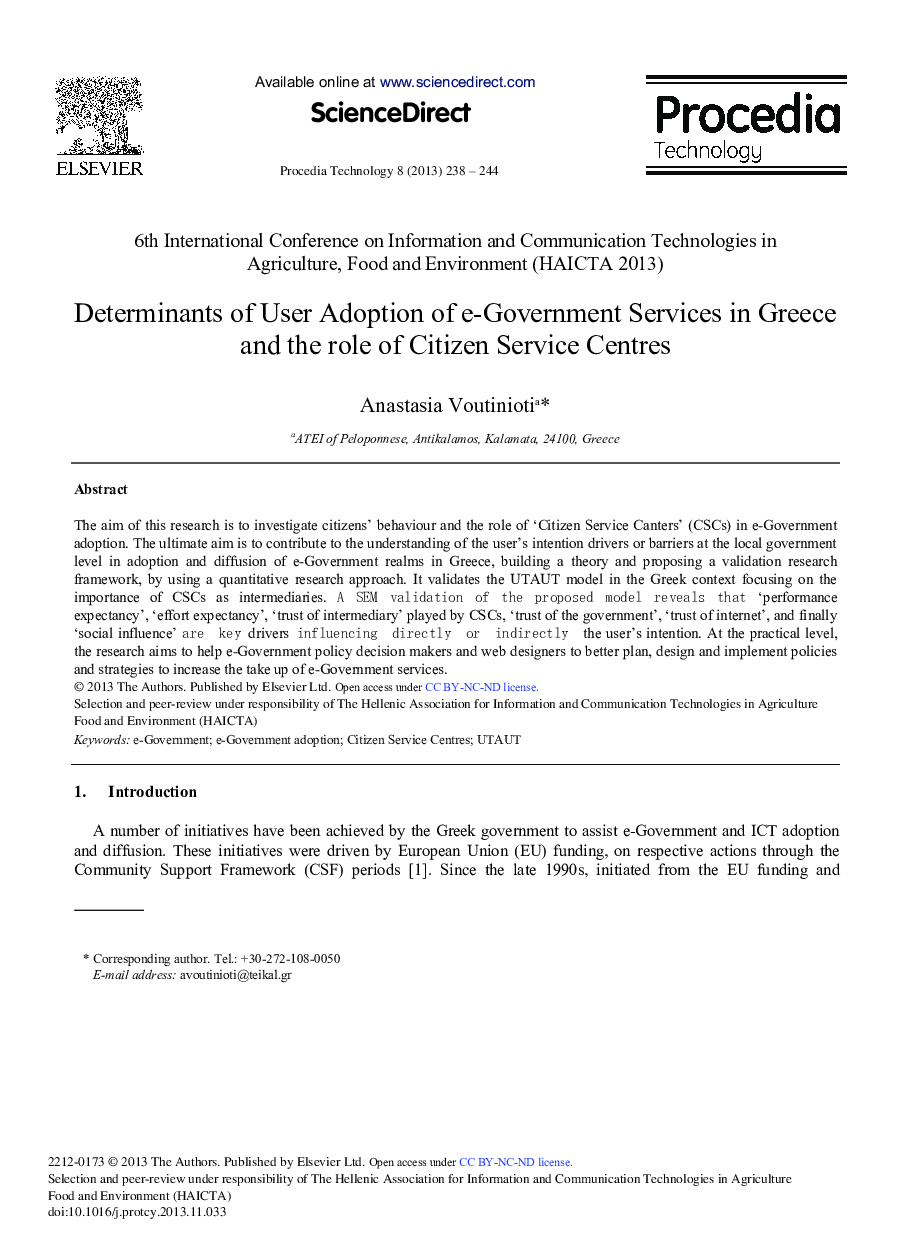| Article ID | Journal | Published Year | Pages | File Type |
|---|---|---|---|---|
| 493103 | Procedia Technology | 2013 | 7 Pages |
The aim of this research is to investigate citizens’ behaviour and the role of ‘Citizen Service Canters’ (CSCs) in e-Government adoption. The ultimate aim is to contribute to the understanding of the user's intention drivers or barriers at the local government level in adoption and diffusion of e-Government realms in Greece, building a theory and proposing a validation research framework, by using a quantitative research approach. It validates the UTAUT model in the Greek context focusing on the importance of CSCs as intermediaries. A SEM validation of the proposed model reveals that ‘performance expectancy’, ‘effort expectancy’, ‘trust of intermediary’ played by CSCs, ‘trust of the government’, ‘trust of internet’, and finally ‘social influence’ are key drivers influencing directly or indirectly the user's intention. At the practical level, the research aims to help e-Government policy decision makers and web designers to better plan, design and implement policies and strategies to increase the take up of e-Government services.
